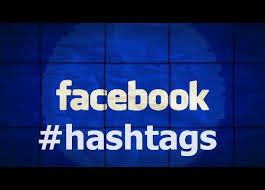
As of June 12, Facebook posts now include clickable hashtags, allowing you to publicly categorize your posts by simply adding a # symbol before any keyword in a post.
"Similar to other services like Instagram, Twitter, Tumblr, or Pinterest, hashtags on Facebook allow you to add context to a post or indicate that it is part of a larger discussion. When you click on a hashtag in Facebook, you'll see a feed of what other people and Pages are saying about that event or topic," Greg Lindley explains on Facebook's blog.
In a move aimed towards cultivating more public conversations on the social network, Facebook has mirrored Twitter (yet again) by now providing a public space to share posts about a designated topic. As is the case with any new Facebook feature, however, privacy concerns should be addressed before utilizing the new feature.
Here are three things to keep in mind when using Facebook's Hashtags:
1) You can select who can see your posts.
If you have already altered your privacy settings, this will, by default, be set to those settings. But, as reported previously on IVN, 13 million Facebook users have never changed their privacy settings. With 28 percent of Facebook users sharing all, or almost all, or their wall posts with an audience wider than just their friends, this could have serious implications if you haven't already changed your privacy settings.
2) Comments will not show up in threads...yet.
Even if your friends use hashtags on your page, your post will remain private if your settings are already private.
3) Old hashtags are still visible.
If, like many Facebook users, you have used a hashtag in a previous post, these posts will be aggregated in Facebook's current database surrounding that hashtag. At the time, you didn't know your inclusion of the pound sign would allow for the widespread delivery of your status update, wall post, or photo. #NowYouKnow
If you're already conscious about your privacy on the social networking giant, then Facebook hashtags will have little impact on your social media behavior. This does not, however, mean that you are insulated from intrusions of privacy on Facebook.
Facebook Graph Search, which rolled out earlier this year, allows users to find specific information about you in one simple search. Facebook applications provide your email, along with your public profile information, to app creators.
Facebook's recent partnership with Datalogix, “a company that collects purchasing data from around 70 million U.S. households drawn from loyalty cards and other sources,” makes your information that much more valuable.
If it's not Facebook Hashtags, it's another intrusive feature carving away your privacy rights online. But at the end of the day, Facebook is a free service. If privacy risks are too high, we always have the option of signing off.
